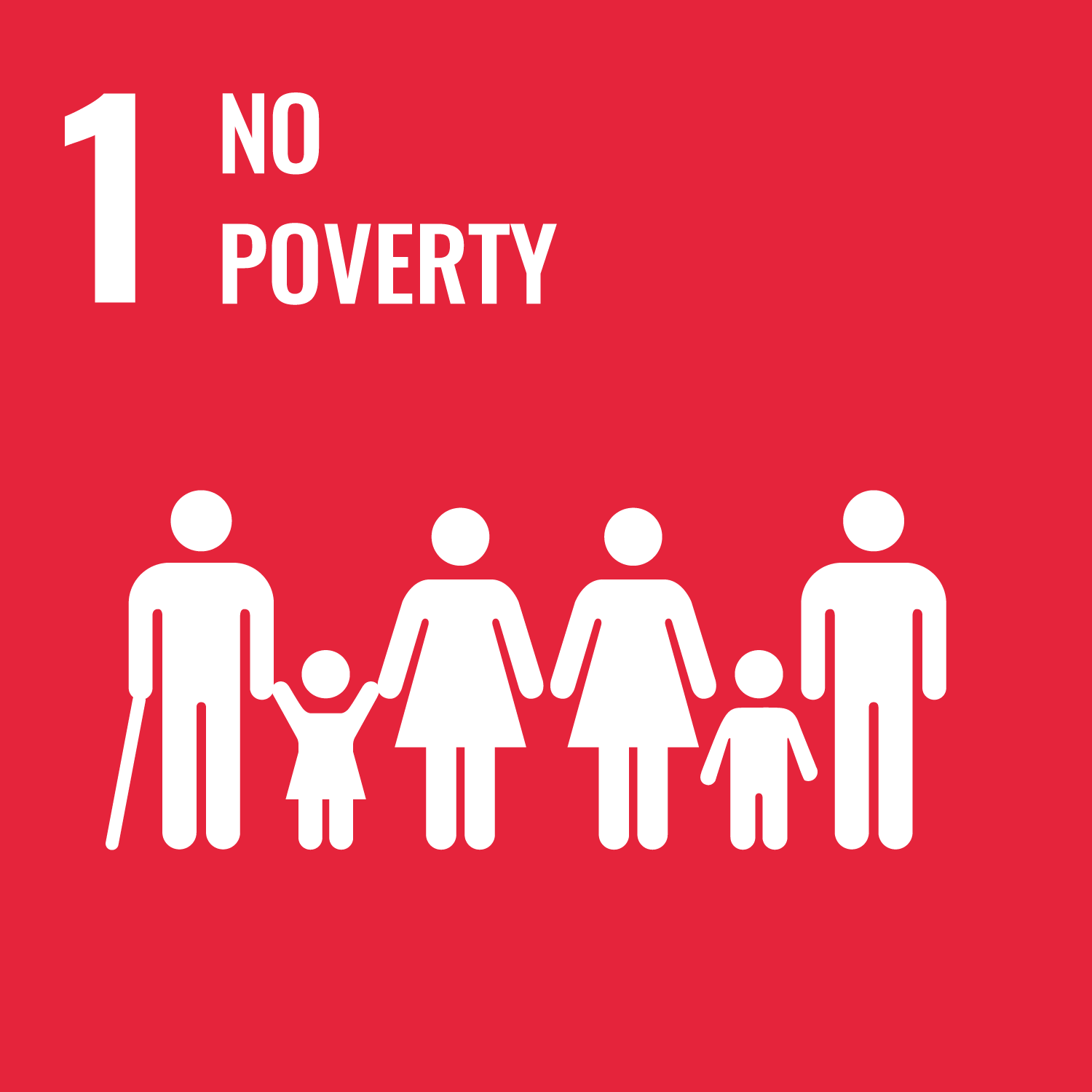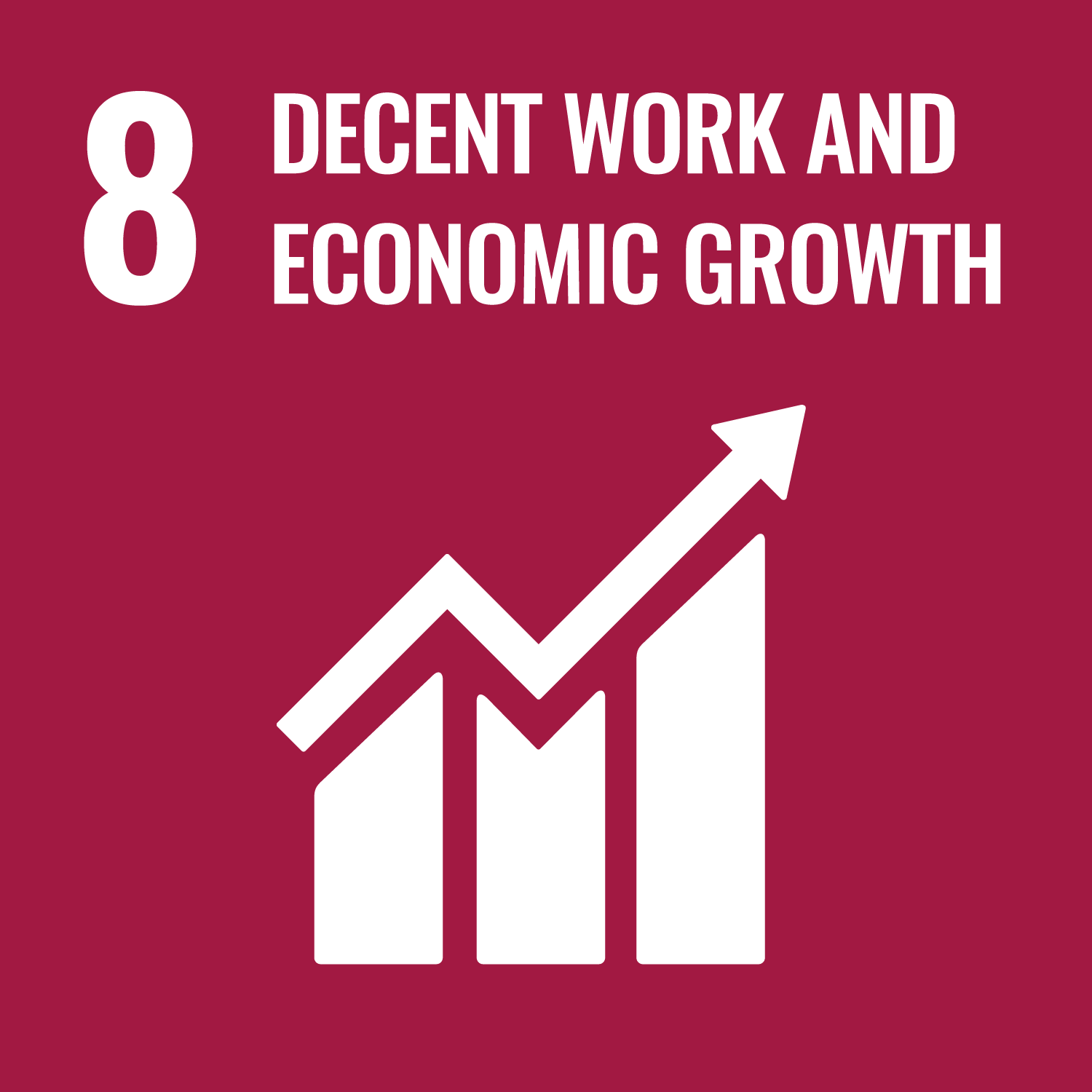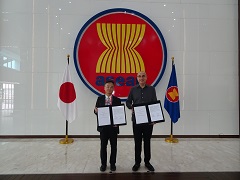Signing of a Record of Discussions on a Technical Cooperation Project with ASEAN: Towards sustainable agriculture and food systems in Southeast Asia through the strengthening of food value chains



2023.07.28
On July 28, the Japan International Cooperation Agency (JICA) signed a Record of Discussions (R/D) with the Association of Southeast Asian Nations (ASEAN) Secretariat for the ASEAN-JICA Food Value Chain Development Project in Jakarta. This is a technical cooperation project to be implemented based on the Agreement on Technical Cooperation between ASEAN and the Government of Japan that was concluded in May 2019, and marks the first time that the ASEAN Secretariat has signed an R/D.
In the Southeast Asian region, consumers’ food needs are diversifying and increasing due to the expansion of the middle-income populations, and there is a high potential for growth in the agricultural and food industries, in which Japanese private companies are showing a strong interest in terms of investment. Additionally,, in some ASEAN member states, agriculture remains a major source of employment and income, and is one of the most important sectors from the perspective of food and nutrition security. However, the potential for creating added value has not been fully realized at each stage of the food value chain, consisting of production, manufacturing/processing, distribution, and consumption, because of its weak linkage among each stage including a case that consumers’ needs are not well reflected in producers’ activities. In response to the challenges within the food value chain, and for the harmonious development of the region, the ASEAN Economic Community is leading and supporting those member states that are taking various measures to overcome these challenges.

Signing Ceremony

In order to enhance the environment for the promotion of the food value chain in ASEAN, through this project, JICA will work together with the ASEAN Secretariat, the coordinating body, and the four ASEAN Sectoral Bodies, namely (1) Sectoral Working Group on Crops, (2) SPS (Sanitary and Phytosanitary) Contact Points, (3) Sectoral Working Group on Fisheries, and (4) Sectoral Working Group on Agricultural Cooperatives. This project complies with the JICA’s Global Agenda “Agricultural and Rural Development”, which includes the "development of inclusive food value chains" as a key approach, and will also contribute to the achievement of SDGs (Sustainable Development Goals) Goals 1 (No poverty), 8 (Decent work and economic growth), and 17 (Partnerships for the goals).
Considering that the year 2023 marks the 50th anniversary of ASEAN-Japan relations, this project also aims to assist Japanese private companies in expanding their business in the ASEAN region and to contribute to the further integration of ASEAN, which is indispensable for regional peace and stability.
Details for the project are provided below.
| Country | Association of Southeast Asian Nations (ASEAN) |
|---|---|
| Project title | ASEAN-JICA Food Value Chain Development Project |
| Planned implementation period | 36 months |
| Executing agency | Food, Agriculture and Forestry Division, Sectoral Development Directorate, ASEAN Economic Community Department, ASEAN Secretariat |
| Target region | ASEAN Member States |
| Specific project details (provisional) | Overall goal: Recommendations and guidelines on ASEAN-GAPs (Good Agricultural Practices), SPS (Sanitary and Phytosanitary) measures, GAqPs (Good Aquaculture Practices), and PPP (Public and Private Partnership) for the promotion of food value chains (FVCs) in ASEAN are utilized by stakeholders in ASEAN and AMS. Project purpose: The enabling environment for promotion of FVC in ASEAN is enhanced. Output 1: Measures are developed for the marketing and promotion of national and ASEAN GAPs. Output 2: Capacities of pesticide residue analysis necessary to strengthen SPS measures in AMS are improved. Output 3: Food safety in the fisheries sector is improved through the promotion of GAqP and the development of guidelines and related policies on inspection mechanisms. Output 4: Strategies for promoting PPP-based FVCs are developed. |
scroll